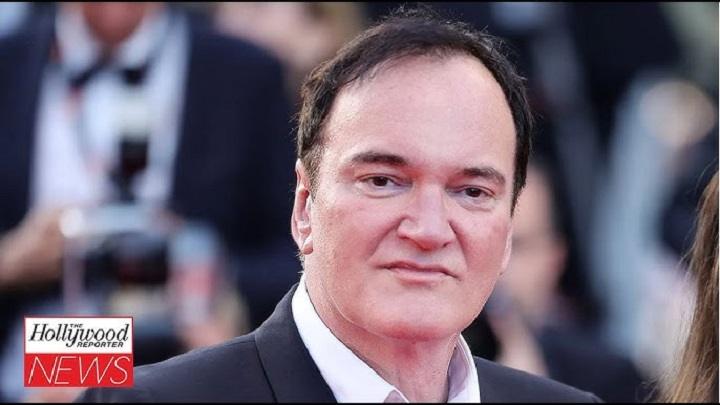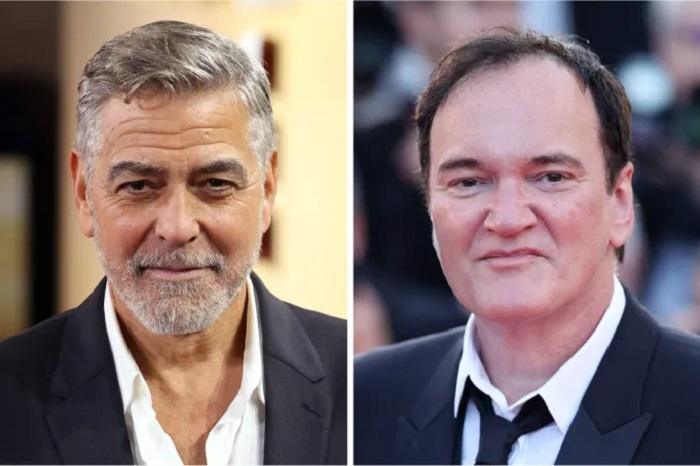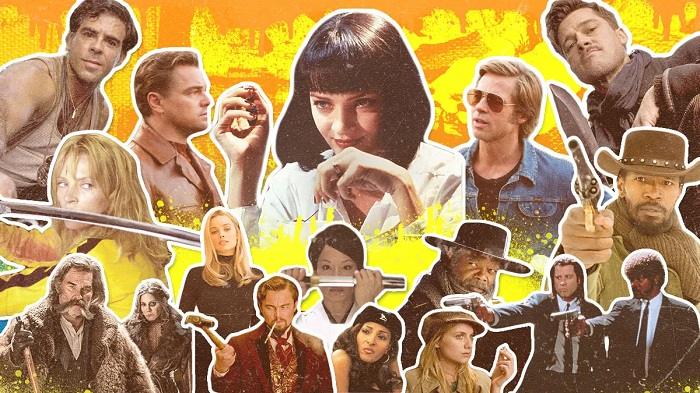Quentin Tarantino is a name synonymous with innovative storytelling and genre-blending filmmaking. Known for his sharp dialogue, unconventional narratives, and love for cinema, Tarantino has carved out a unique niche in Hollywood. From his early days as a video store clerk to becoming one of the most celebrated directors of his generation, Tarantino’s journey is a testament to his passion for film and his dedication to his craft. This blog post takes a comprehensive look at Tarantino’s life, career, and influence on the world of cinema.
Early Life and Background
Quentin Jerome Tarantino was born on March 27, 1963, in Knoxville, Tennessee, USA. Raised by his mother, Connie McHugh, and stepfather, Curt Zastoupil, Tarantino spent most of his childhood in Los Angeles, California. His passion for films started at an early age, fostered by frequent visits to movie theaters and a fascination with classic cinema. He dropped out of high school at 15 to pursue his love of filmmaking, taking acting classes and working various odd jobs to support himself.
Entry into Filmmaking
Tarantino’s entry into filmmaking was unconventional. He worked at Video Archives, a video rental store in Manhattan Beach, California, where he immersed himself in a wide range of films, from grindhouse classics to European art cinema. This eclectic mix of influences would later become a hallmark of his style. Tarantino’s first attempt at a feature film was “My Best Friend’s Birthday,” an unfinished project that nonetheless demonstrated his knack for quirky dialogue and pop culture references.
Breakthrough with “Reservoir Dogs”
Tarantino’s big break came with “Reservoir Dogs” (1992), a gritty crime thriller that he wrote and directed. The film was a hit at the Sundance Film Festival and became a cult classic. Known for its nonlinear storytelling, sharp dialogue, and graphic violence, “Reservoir Dogs” showcased Tarantino’s distinct voice and established him as a fresh new talent in Hollywood. The film’s success paved the way for Tarantino to take on more ambitious projects.
The Phenomenon of “Pulp Fiction”
“Pulp Fiction” (1994) is often regarded as Tarantino’s magnum opus. The film, which won the Palme d’Or at the Cannes Film Festival, is a groundbreaking mix of dark comedy, crime, and drama, told through a nonlinear narrative. Its ensemble cast, including John Travolta, Uma Thurman, and Samuel L. Jackson, delivered some of the most memorable performances of their careers. “Pulp Fiction” redefined independent cinema and had a profound impact on the film industry, influencing countless filmmakers and spawning a wave of imitators. The film’s dialogue, full of witty banter and pop culture references, has become iconic, cementing Tarantino’s reputation as a master of screenwriting.
Diverse Genres and Storytelling
Following “Pulp Fiction,” Tarantino continued to explore different genres and styles. He directed “Jackie Brown” (1997), a homage to blaxploitation films of the 1970s, and “Kill Bill” (2003-2004), a two-part martial arts epic that blended samurai cinema, spaghetti westerns, and kung fu movies. “Kill Bill” demonstrated Tarantino’s ability to fuse various genres and influences into a cohesive and entertaining whole, while also showcasing his penchant for strong, complex female protagonists.
Tarantino’s subsequent films, “Death Proof” (2007), “Inglourious Basterds” (2009), “Django Unchained” (2012), and “The Hateful Eight” (2015), further solidified his status as a versatile filmmaker unafraid to tackle different genres and controversial subjects. “Inglourious Basterds,” in particular, was praised for its audacious rewriting of history and its standout performances, especially Christoph Waltz’s Oscar-winning turn as Colonel Hans Landa. “Django Unchained” brought the western genre back into the spotlight, blending Tarantino’s signature style with themes of revenge and justice in the pre-Civil War South.
Influence on Cinema and Pop Culture
Quentin Tarantino’s influence on cinema is undeniable. His films have inspired a generation of filmmakers to embrace nonlinear storytelling, develop unique characters, and mix genres in innovative ways. Tarantino’s work is characterized by his deep love for cinema, and his films are often filled with references to other movies, making them a treasure trove for cinephiles. His dialogue, often laced with humor and cultural references, has become a staple in pop culture, with lines from his movies frequently quoted and parodied.
Tarantino’s impact extends beyond the screen. He has played a significant role in promoting and preserving film culture through his dedication to film screenings and festivals. He is known for his advocacy of 35mm film projection and his efforts to keep traditional movie theaters alive, most notably through his ownership of the New Beverly Cinema in Los Angeles, where he curates film screenings from his personal collection.
Controversies and Criticisms
Despite his success, Tarantino has not been without controversy. His films are known for their explicit violence and use of racial slurs, which have sparked debates about their appropriateness and impact. Tarantino has defended his choices as necessary for authenticity and storytelling, but his critics argue that his films often revel in violence and sensationalism. Additionally, his outspoken personality and comments on various social and political issues have occasionally landed him in hot water.
One of the most notable controversies surrounding Tarantino is his relationship with producer Harvey Weinstein, who produced several of Tarantino’s films before facing multiple allegations of sexual harassment and assault. Tarantino has expressed regret over not taking a stronger stance against Weinstein earlier, acknowledging his failure to act despite being aware of some allegations against Weinstein.
The Legacy of Quentin Tarantino
As Quentin Tarantino approaches the end of his directorial career—he has stated that he intends to retire after his tenth film—his legacy as a filmmaker is already well-established. Tarantino has consistently pushed the boundaries of storytelling, combining his encyclopedic knowledge of cinema with a bold, uncompromising vision. His ability to craft memorable characters, write sharp dialogue, and weave together disparate genres has set him apart as a true auteur.
Related Post:
Mor Shapiro: A Comprehensive Look at the Life, Career, and Influence of a Prominent Public Figure
Ruby Guest: The Life and Legacy of a Remarkable Individual
Reacher Season 3: What to Expect from the Latest Installment of the Hit Series
Moreover, Tarantino’s influence on the next generation of filmmakers is evident. Directors such as Edgar Wright, the Coen Brothers, and Christopher Nolan have all acknowledged Tarantino’s impact on their work. His films have become cultural touchstones, often referenced and analyzed in film studies programs and enthusiast communities alike.
Quentin Tarantino’s career is a testament to the power of creativity and passion in filmmaking. His ability to defy conventions and push boundaries has not only entertained audiences but also influenced the art of cinema in profound ways. As we reflect on his extensive body of work, it’s clear that Tarantino will be remembered not just for his movies but for the unique vision and voice he brought to Hollywood. Whether you love him or hate him, Quentin Tarantino remains one of the most influential and important filmmakers of our time.
This blog post offers a comprehensive overview of Quentin Tarantino’s life, career, and influence on the film industry. If you need any adjustments or additional information, please let me know!




